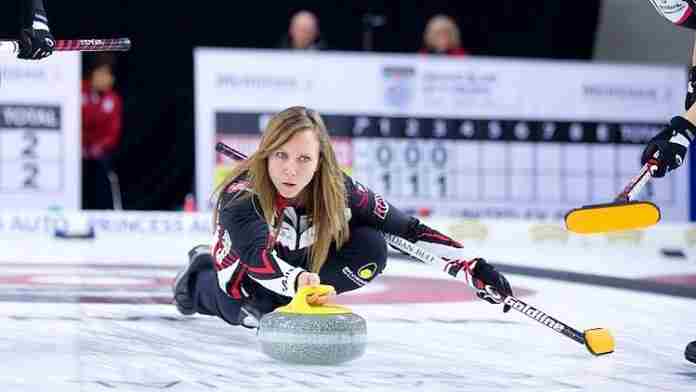 When the International Olympic Committee issues one of its periodic statements on how it is adapting the Olympic Games to modern times, it’s hard to know whether to take it seriously.
When the International Olympic Committee issues one of its periodic statements on how it is adapting the Olympic Games to modern times, it’s hard to know whether to take it seriously.
Is this a preview of real change coming to the Games? Or another self-congratulatory, self-serving statement that, in actuality, means little?
But as long as the IOC keeps serving these up, it’s worth examining them for clues to the future.
On 27 December, a little-noticed IOC release entitled “Generation Games: How the IOC is working to evolve the Olympic Games for the next generation of athletes and fans” discussed the future of sport as reflected in the Games.
The featured comments about the sports and events to be part of future Games came from Italy’s Franco Carraro, the chair of the Olympic Programme Commission and for 10 years the head of the Italian National Olympic Committee. Now 79, he will retire from the IOC at the end of 2019 as his 80th birthday will come on 6 December of this year.
His comments were hardly new, but they were instructive about the IOC’s view of sport into the future. Speaking of new events which will come into the Games in 2020:
“Many of the new events reflect the changing nature of society, the changing nature of technology, and the changing role of sport within wider society. The Olympic programme is still focused on the world’s greatest athletes performing on the world’s greatest sporting stage, in the world’s most popular and highest profile sports. But obviously the composition of those sports has changed over the last 120 years.”
“Perhaps one of the most significant trends has been the emergence of urban sports and adapted formats, with the likes of BMX freestyle park, skateboarding and 3×3 basketball all set to make their debut on the Olympic programme at the Olympic Games Tokyo 2020. According to Carraro, these changes to sport are inevitable due to the increasing numbers of people living in urban settings around the world.
“The changes to the Tokyo 2020 event programme reflect the changing nature of sport and the changing structures of sport,” he explains. “We’re seeing more urban sport. We’re seeing more adapted or shortened formats. These reflect the changes in society, the overall global urbanisation of populations and, therefore, the changes in the ways that they can access sports facilities and experience sport.”
In and of themselves, these comments are hardly new. IOC President Thomas Bach (GER) has said essentially the same thing over and over again, emphasizing that “sport must go where the people are.”
But at the same time, the IOC is also facing substantial pushback on the size of the Games and the cost to organize both the Olympic and Winter Games. So that begs the question of what the IOC is willing to do to make both events smaller and more manageable.
Or is the talk of changing the Games to reflect society just another empty promise.
Consider, please, that the Olympic Games for Tokyo in 2020 will comprise 339 events in 33 sports and include 11,000-plus athletes. And that the proposed budget in Tokyo’s bid for 2020 was about $7.3 billion U.S. for both the organizing committee and public works and that the “agreed” budget is now more than $12 billion.
The international sports federations which are part of the Olympic program rank themselves into tiers for the purpose of distributing the hundreds of millions of dollars given to them by the IOC from the sales of television rights to the Games. These tiers are based on the attention and popularity of these sports to both the live (on-site) audiences and the worldwide audience through all forms of mass media:
● Tier 1 (3): Athletics, Aquatics, Gymnastics
● Tier 2 (5): Basketball, Cycling, Football, Tennis, Volleyball
● Tier 3 (8): Archery, Badminton, Boxing, Judo, Rowing, Shooting, Table Tennis, Weightlifting
● Tier 4 (9): Canoeing, Equestrian, Fencing, Handball, Hockey, Sailing, Taekwondo, Triathlon, Wrestling
● Tier 5 (3): Modern Pentathlon, plus the new sports for 2016: Golf and Rugby
Based on Carraro’s comments and the continuing pressure on costs and complexity of events held in the digital age, when will the IOC actually face the question of eliminating not just individual events, but entire sports which are not widely popular, not urban and not “cutting-edge” for the 21st Century?
Taking Carraro’s comments seriously, how can any of the sports in Tier 4 or Tier 5 be considered as core elements of the Olympic program?
Traditionalists can make the argument – important in the context of an event steeped in history like the Olympic Games – that the sports on the 1896 program in Athens (GRE) should be preserved on the program. OK, those were Athletics, Cycling, Fencing, Gymnastics, Shooting, Swimming, Tennis and Weightlifting. Rowing was to be included, but that competition was canceled due to bad weather.
That lets out Canoeing, Equestrian, Handball, Hockey, Sailing, Taekwondo, Triathlon, Wrestling and Modern Pentathlon (Golf and Rugby are too new to judge as to their proper tier). That’s nine sports.
If you accept another traditionalist argument that wrestling was part of the ancient Olympic Games, you’re still left with eight sports that could be eliminated, along with their venues, training sites, officials, volunteers, power and technology infrastructure and all the rest.
That’s how you make an impact on the cost of the Games and the impact it makes on a city or region. But will the IOC really do this?
It keeps threatening to eliminate the AIBA as the federation for boxing for the 2020 Games in Tokyo, but promises not to harm any boxers in the process. The IOC Executive Board continues to threaten weightlifting’s place in the 2024 Games due to the dozens of doping positives in that sport, but has made no final decision yet. That could come later this year when the sports program for Paris may be confirmed.
These are hard decisions, but the IOC has made them before. Baseball and Softball were eliminated from the program and will return on a one-time basis for Tokyo in 2020, along with new sports such as Karate, Surfing and Sport Climbing. None of these need to be on the program for Paris in 2024, but they are lobbying hard to stay in the Games. Wrestling was eliminated from the 2020 program, but put back in.
So it can be done. The IOC, in the current version of the Olympic Charter, names 28 sports to be part of the Olympic Games, but retains the flexibility to change the program as it wishes up to three years prior to a specific Games.
If we count up the sports in the IF tiers 1-2-3, they total 16. Perhaps those sports should be required and let the organizing committee recommend up to five more – 21 for the 21st Century – from among the others. That would allow local organizing committees to fully implement the IOC’s Agenda 2020 and “The New Norm” by truly shaping the Games to the interests of the host community, in keeping with its existing facilities.
That would be hard to do, but if the IOC – and Carraro – are serious, it’s the right way to go.
Of course, if the IOC’s post on the Games for a new generation is simply for show, then forget it. Business as usual.
Rich Perelman
Editor
























